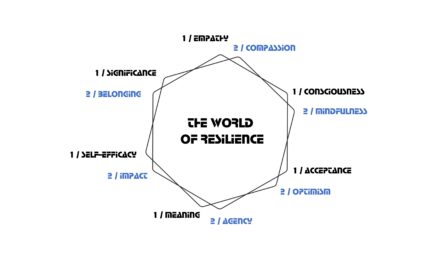Mindfulness is a buzzword that has been circulating in many areas of life for some time.
But what exactly is meant by it? And how can consciousness help us to be more mindful of ourselves and others?
The interesting thing about mindfulness is that mindfulness is not possible without consciousness. Because how are we supposed to pay attention to something that we are not even aware of?
A few years ago, a good friend gave me the following sentence: “Conciousness is the beginning of everything.”
Of course, this sounds incredibly abstract at first, but in principle it is quite simple: consciousness makes the difference between “letting things happen” and “making active life decisions”.
We all have to make an incredible number of decisions every day. This is very exhausting. And that is why we make many of them very unconsciously. The downside of this is that we let more and more things just happen or do them more or less automatically. This is helpful in many places – for example when driving a car. And it reduces the complexity of life.
At other times, however, it is not good for us at all, because we no longer question certain things or feel inside ourselves whether it is good for us at all what we automatically decide, do or let happen.
In other words, only when we consciously perceive what is happening within us and around us are we at all able to actively decide for or against something.
This makes it clear why mindfulness cannot exist without consciousness.
Being mindful of ourselves and the world we live in, includes the people around us, is based on consciously listening to and feeling within ourselves, and at the same time requires us to be equally conscious of our environment.
Only then can we decide what would best serve us and others in a specific situation. In relation to other living beings, empathy is particularly important – but more on that elsewhere.
Mindfulness in this sense is therefore the conscious search for the best alternative actions – and of course this explicitly includes doing nothing. But perhaps also a short break in our hectic everyday life. Giving up the next cigarette or the next chocolate bar – or precisely their consumption. Because asceticism is often not an automatism for being or becoming happy.
You see, mindfulness is mostly about balance. Between the negative and positive effects of one’s own actions. Between one’s own interests and those of others. Between a right now, or rather later.
Awareness and mindfulness thus lead to a specific, focused form of attention that is concentrated on the present moment (instead of the past or the future), and tries to perceive it actively and without judgment. And if possible with all senses – emotionally as well as with the mind.
And why are consciousness and mindfulness important for building resilience?
Since resilience is essentially about our emotional resistance – i.e. how we manage to deal successfully with stress, disruptions and crises – it is important to perceive things as they really are. In full consciousness. In order to make decisions for action based on this, which include all relevant factors and effects in a mindful way.
The opposite would be to not really pay attention, to let oneself be guided by one’s own fears, to simply let things happen and to anticipate the consequences neither with your mind (rational) nor with your heart or soul (emotional). And as a result, we often neither meet our own needs nor those of others.





